The Fulcrum of Courage, Part 9
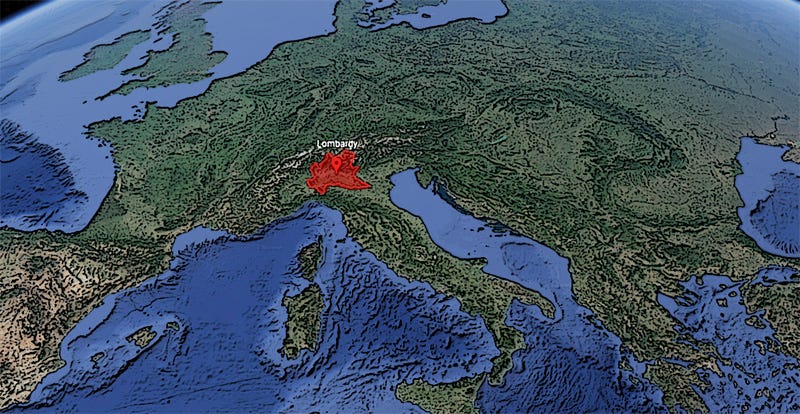
Lombardy is in northern Italy. Bobbio was growing into a city when Gerbert of Aurillac arrived in the summer of 973.
There was a renowned library in the Abbey with over 600 books. Some were 1000 years old. Consequently, the monastery, founded in 614, was an influential hub of Christian belief. It still is today.
Despite the considerable wealth of the monastery in Bobbio, the cathedral was falling apart. After decades of neglect by previous Abbots, Gerbert was expected to oversee its restoration.
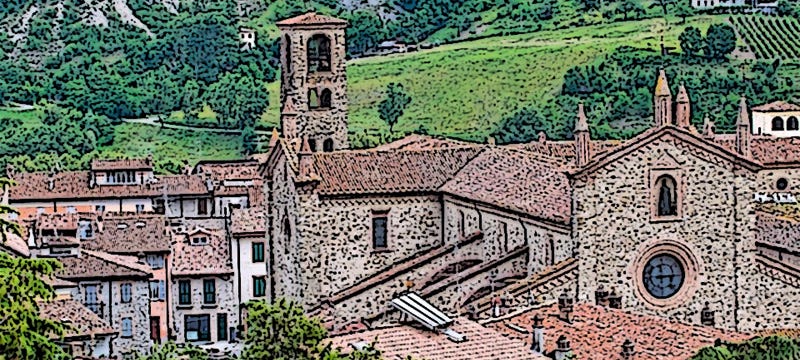
This was Gerbert’s first experience as an administrator.
He had two powerful titles and a palace in Pavia. Yet he knew nothing about architecture, and even less about the land laws peculiar to Lombardy.
When he was being honest with himself, he didn’t feel worthy. The man he saw in the mirror wasn’t sure what to do.
Still, being appointed by the emperor suggested he was competent. Gerbert concluded Otto II must have believed he had a natural, intuitive understanding of the law.
Most of the land in Lombardy belonged to monasteries, clerics, and nobles.
Gerbert intended to make agricultural reforms to increase overall food production and facilitate trade. It distracted him entirely from restoring the Abbey. Since he saw how it could benefit everyone, he believed it was a worthy cause.
Even so, he knew he would face opposition from people with entrenched interests, so he tried to appear fearless. It didn’t help. His unjustifiable confidence was obvious.
Although his ideas were logical, they were often based on incomplete information or legal misunderstandings. Consequently, he made impossible requests of landowners and they angrily rejected him.
Gerbert soon became intensely afraid of humiliation and unreasonably strict. He often came across as condescending, and people found him boring.
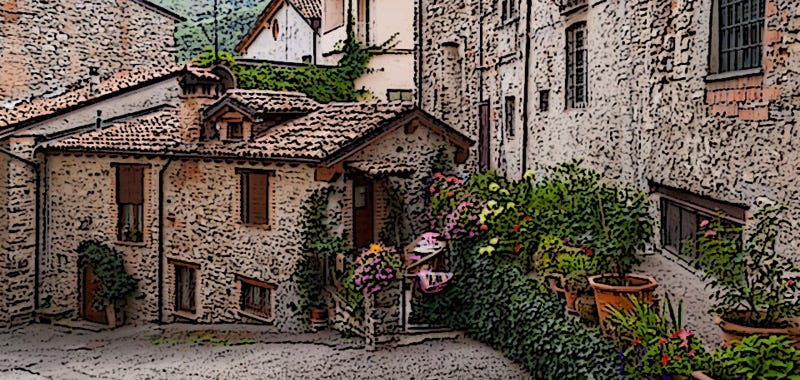
Over the next 7 years, Gerbert increasingly relied on his titles for respect. People who would have been happy to help achieve his vision in other circumstances were quietly uncooperative. Some refused to express any emotion whatsoever in his presence.
The more he hid behind his formal authority, the more landowners found him erratic, demanding, and inept. It wasn’t long until they were perfectly willing to oppose him with violence.
Gerbert’s plans almost always required adjustments to the land laws. Some were simply not feasible. Others were ill-conceived. Whenever he pushed for the changes he believed necessary, resistance increased.
First the local aristocracy withheld taxes. Then military support. Then they attacked with the aim of publicly humiliating him.
Once, a group of nobles stole the entire store of food from the Abbey just to expose his vulnerability. A few even hosted a meeting inside his own palace to plot against both him and the emperor!
Meanwhile, Otto II was busy defending the Holy Roman Empire.
Lothair needed Otto II’s authority on his side to keep the French throne. In exchange, Otto II required Lothair to renounce his claim on Lorraine.
He chose to accept Otto II’s terms. Even so, Lothair’s decision was strongly opposed by a prominent member of his court, Hugh Capet.
In Venice, a group of nobles wanted to align with Byzantium. They assassinated the Roman magistrate in a fire but accidentally burned most of the city to the ground.
The new magistrate had no choice but to be conciliatory and 4 years later, Otto II replaced him with one loyal to Rome.

In 980, the Master of Magdeburg Cathedral School in Saxony sent a letter to Otto II denouncing Gerbert. His tone was utterly viscous. Gerbert’s inability to restore the Abbey in Bobbio, he argued, was due to arrogance and stupidity.
Master Otric claimed to be a superior scholar and administrator. He demanded an opportunity to prove it by debating Gerbert before the emperor. Otric had already gained the political support of several powerful aristocrats.
The same year, Theophanu gave birth to Otto II’s heir, Otto III.
Gerbert was their preferred choice of tutor, except his reputation as an administrator was shot. Otto II would appear to be taking a foolish risk by appointing him.
Except, if Gerbert were to debate Otric and win, his reputation could be restored and Otric would be repudiated by his allies. In December, Otto II summoned Otric and Gerbert to Ravenna.
Otric began with a subtle attack on Gerbert’s character. He took Gerbert’s points out of context, twisted the meanings of words, and accused Gerbert of being incoherent.
It quickly devolved into a heated argument so intense Otto II intervened.
The debate’s results were inconclusive. Gerbert’s reputation as an administrator remained in tatters, but he was still a teacher. He was well-known for his contributions to mathematics and astronomy.
Otric had not lost, but neither had he won. Shortly thereafter, Otto II appointed Gerbert Master of the monastery in Bobbio.
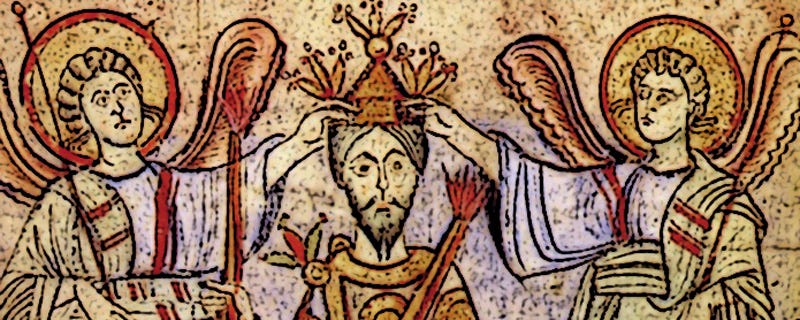
In 982, there was an uprising in the Slavic territories on the Empire’s eastern border.
Otto II’s army was crushed in Sicily.
Many of his most capable officials were killed and he was losing in southern Italy.
At the behest of the Empire’s nobles, Otto II arranged to have his 3-year-old son elected king of Germany and Italy.
Theophanu immediately took their little boy on a perilous journey over the Alps to Aachen in Saxony, where he could be coronated heir apparent. Otto II stayed behind to fight Muslim invaders.
In 983, Pope Benedict VII died of natural causes. Otto II was fighting to retake territory from the Byzantine empire. The young emperor had to pause his campaign and return to Rome to select a new pope.
Meanwhile, there was a massive outbreak of malaria in southern Italy.
In late November, Otto II’s skin and eyes turned yellow. He was exhausted. His head ached, he developed a fever, and he couldn’t hold down food.
At the start of December, he began having seizures.
Finally, on the 7th of December 983, Otto II died of malaria at the age of 28.
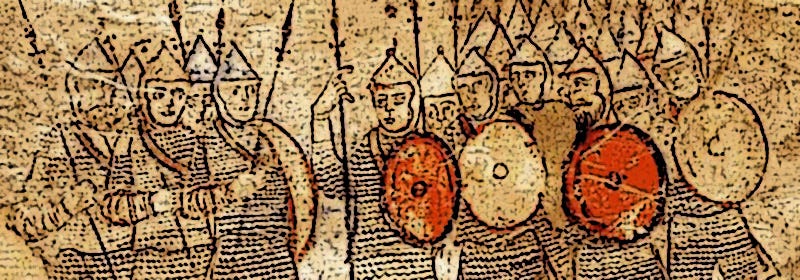
A rebellion broke out in Lombardy within days. Gerbert was forced to flee.
Meridiana’s father was still the Count of Roucy, so they set out for Reims where Gerbert could teach mathematics and logic.
A messenger sent by the Empress met them in Pavia just as they were leaving.
The former duke of Bavaria was plotting with Lothair and Emma to take Otto III from Theophanu and seize control of the empire.
Next: When are you capable of courage? Humility and the purpose of allegiance.




Genuine competence is not theatre, and neither is authentic courage.
"Fake it till you make it" is based on a philosophy of performance rather than authenticity. It instructs the holder of it, as a belief, to lie. To be believable, you ultimately have to lie to yourself, too. It leads to poor mental health because the next step is defensively and erroneously placing mental objects.
This does nothing to make a person competent. In fact, it produces anti-social behavior and grandiose notions, ultimately reducing chances of success - especially in relationships with others. People cope with others' self-delusions by ostracizing or attacking them.
Delusional people with grandiose notions are not courageous. They are cowards who fake it and hide behind titles and credentials. In the next installment (a week from now), you'll see how this common self-delusion can be overcome.
The "faking it" meme has become pernicious in western culture. It comes from the personal growth industry, which is ripe with hyperbole and dumbed-down interpretations.
They got their ideas from philosophies of performativity (Simone De Beauvior, for example). The problem is, the person is not the mask.
Genuine competence is not theatre, and neither is authentic courage. This is how "faking it" almost destroyed the Roman Empire in the year 983.